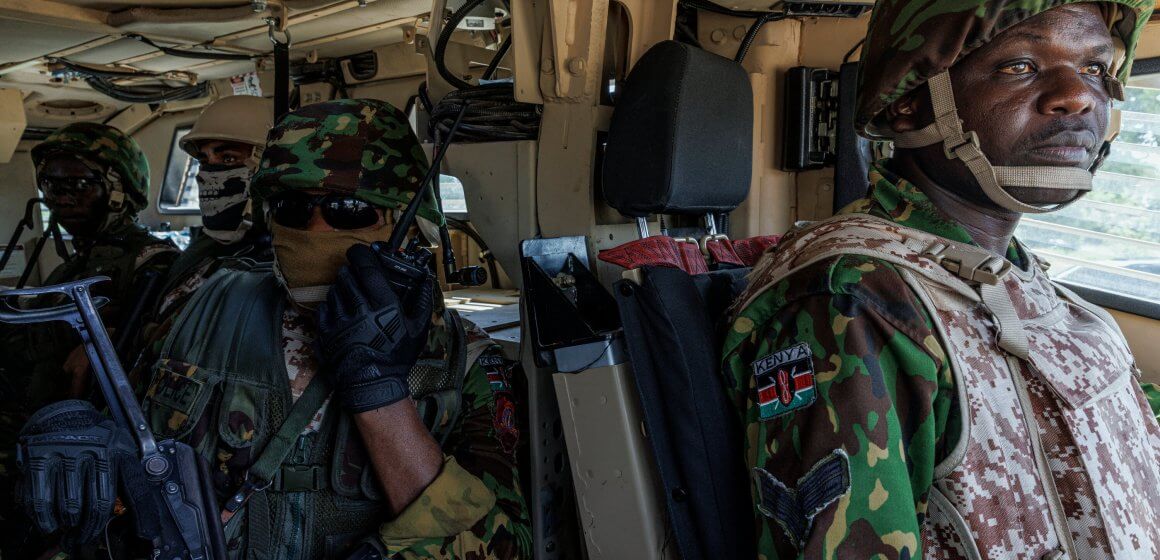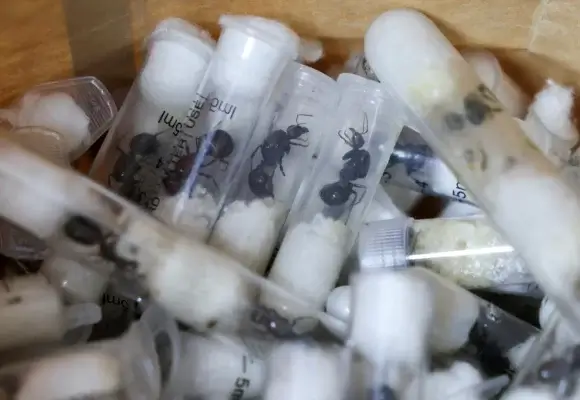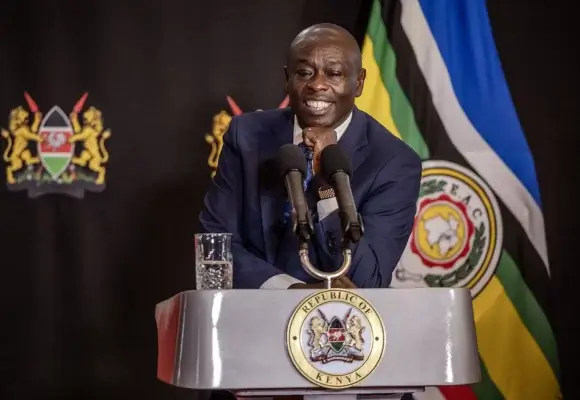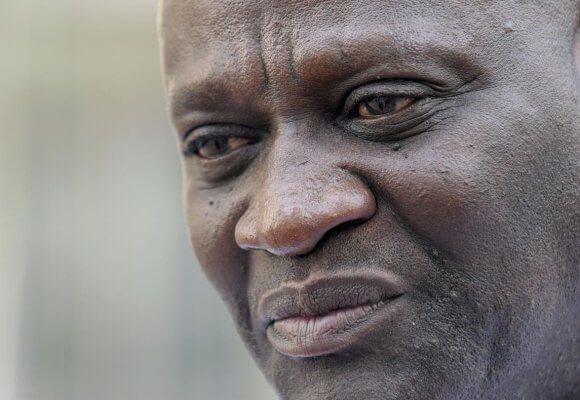|
LISTEN TO THIS THE AFRICANA VOICE ARTICLE NOW
Getting your Trinity Audio player ready...
|
A Kenyan peacekeeper deployed in Haiti was killed on March 25, 2025, as gangs escalate their grip on the Caribbean nation. The officer, Bénédict Kabiru, lost his life in an ambush in the Artibonite region, a hotspot for gang violence.
Kabiru was initially reported missing after gang members targeted two mine-resistant ambush-protected (MRAP) vehicles operated by the MSS in Pont-Sondé. According to MSS sources, the attack happened as the forces attempted to retrieve a trapped armored police vehicle, believed to have been deliberately obstructed by gangs. The assault left one MRAP stuck and another experiencing mechanical failure, creating a vulnerable moment that the gangs exploited.
Videos purporting to show Kabiru’s body surfaced online after the attack, though their authenticity has yet to be verified. The Haitian Presidential Transitional Council later confirmed his death, and hailed his sacrifice in the fight against criminal gangs.
“This valiant police officer, engaged alongside Haitian forces to fight insecurity, made the ultimate sacrifice for a better future for our country. His bravery and commitment will never be forgotten,” the council said in a statement.
Kabiru’s death is the second Kenyan casualty since MSS forces arrived in Haiti in June 2024. Kenya’s decision to lead the international security mission in Haiti marked a historic shift in African nations taking on prominent peacekeeping roles beyond their continent. The mission, though supported by the United States and the United Nations, is primarily African-led.
Despite skepticism about foreign interventions in Haiti, the deployment of Kenyan forces has been widely viewed as a symbol of South-South cooperation, where developing nations support each other in tackling crises. However, the mission faces challenges, with gangs resisting efforts to restore order and extending their control from Port-au-Prince, where they control over 80% of the city, into rural regions.
Haiti has been in freefall for years, with gangs acting as de facto rulers in large parts of the country. In October 2024, the Gran Grif gang massacred over 70 people, including women and children, in Artibonite; the same region where Kabiru was killed. The United Nations estimates that nearly 23,000 people were displaced in a single week in March.
The crisis has affected global security, migration, and regional stability. Over 5.5 million Haitians are facing hunger, one of the highest proportions in any crisis worldwide.
As news of Kabiru’s death spread, U.S. Secretary of State Marco Rubio embarked on a tour of the Caribbean, with Haiti’s security at the top of the agenda. On March 26, he met with Fritz Jean, head of Haiti’s Presidential Transitional Council, in Jamaica to discuss strategies for restoring order.
The United States has been a key financial backer of the MSS, but the continued bloodshed raises questions about whether the mission is equipped to handle Haiti’s crisis.











LEAVE A COMMENT
You must be logged in to post a comment.